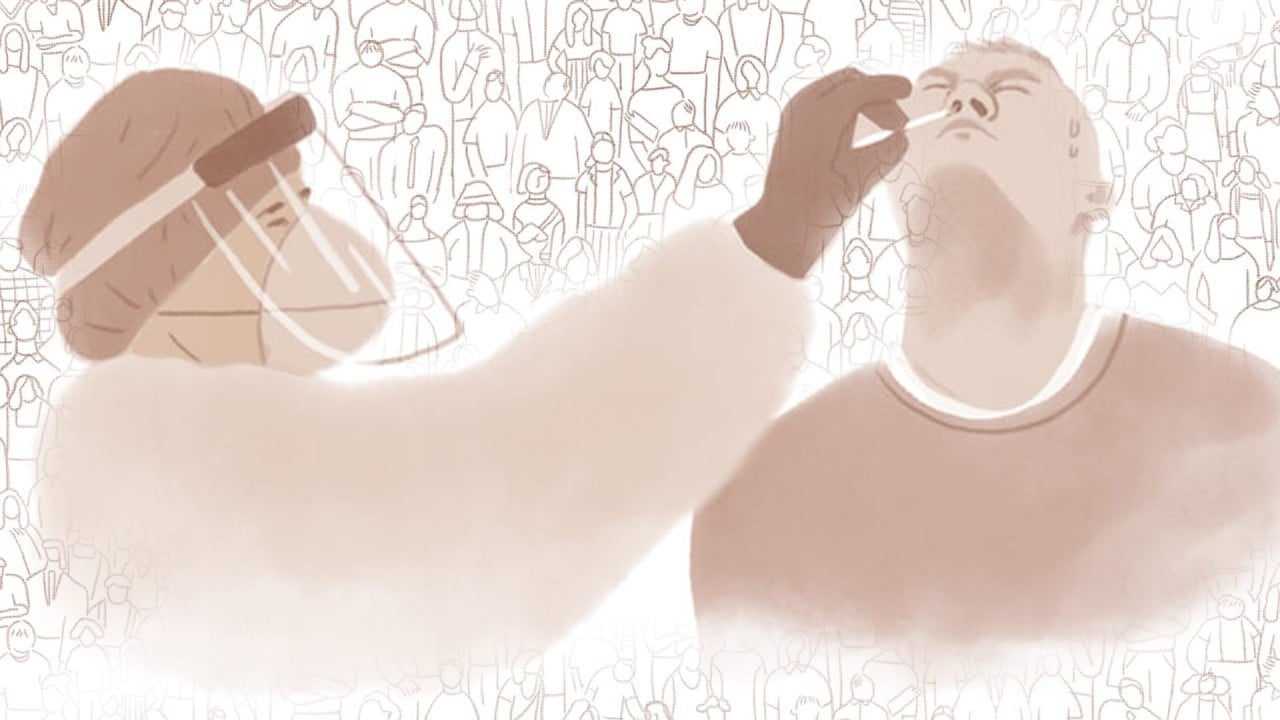
Hong Kong records eight new cases of Covid-19, as government adviser calls for Spain, Italy to be added to high-risk list
- Outbreak situation in Europe has worsened in recent weeks, with some countries reporting five-digit daily infection tallies
- Tourism stakeholders, meanwhile, say they expect thousands of lay-offs within a month if more help is not forthcoming
Hong Kong is growing increasingly concerned about protecting itself in the face of a rapidly worsening pandemic situation in Europe, with alarming daily infections not only in Italy and Spain but Russia and France as well.
“The government should periodically update the list of high-risk countries,” Professor David Hui Shu-cheong, an adviser to the government on the pandemic response, told the Post. “Even for places with only one to two flights coming to Hong Kong weekly, if there is an outbreak there, we need to be careful.”
Hong Kong has already placed 13 countries on its high-risk list, including India, Britain and the United States. Travellers from the nations are required to present a negative Covid-19 test result before boarding a flight to the city and must be quarantined in a hotel at their own expense, instead of at a government facility.
France and Russia were the latest additions to the list, with their inclusion coming into effect on Monday.

02:36
How successful was Hong Kong’s coronavirus mass testing programme?
Spain, which saw more than 20,000 infections one day last week, declared a national state of emergency on Sunday set to last until early May and imposed a curfew. Italy announced a new round of restrictions across the country the same day, shutting down gyms, pools and cinemas, while mandating early closing times for cafes and restaurants. New Covid-19 cases in the country have been growing for the past two weeks, with nearly 40,000 logged over the weekend.
Monday’s new cases took Hong Kong’s total to 5,303, with 105 related deaths. It was the first time since October 17 there were no local infections.
Two of the latest cases arrived from India, while the rest came from Pakistan, the Czech Republic, Russia, Serbia, France and Indonesia.
Hong Kong allows bigger local tours but business outlook bleak
Hui stressed Hong Kong needed to guard against any imported infections.
“Border control is the most crucial point in preventing the fourth Covid-19 wave,” he said.
The Food and Health Bureau said the Department of Health would continue to closely monitor the pandemic situation around the world, maintain a list of very high-risk places and suitably adjust the quarantine and testing arrangements for arrivals.
Long-standing travel restrictions, however, have battered sectors of Hong Kong’s economy, particularly the tourism industry. In the first eight months of this year, there were 88.4 per cent fewer visitors to the city from long-haul markets than during the same period last year, according to the Tourism Board. Total arrivals have plummeted by more than 92 per cent over the same period.
Timothy Chui Ting-pong, executive director of the Hong Kong Tourism Association, told a radio programme that businesses had eked out a small profit over the long weekend.
Chui said a couple taking a half-day tour paid around HK$60 (US$7.7) to take part, and with a HK$200 subsidy per person under the government’s green lifestyle local tour scheme, the revenue generated was just enough to make some money.
“But of course in the long run, we cannot survive simply through organising local tours,” he said. “We hope the government can soon reopen the borders between Hong Kong and mainland China, including Macau.”
Meanwhile, some tourism industry representatives staged a drive-by protest on Monday morning, with coaches slowly making their way from Wan Chai to the government headquarters in Admiralty, calling for further financial assistance from the government and the reopening of the border.
Hong Kong financial chief predicts mainland growth will lift local economy in third quarter
Tommy Tam Kwong-shun, chairman of the Society of IATA Passenger Agents, a coalition of the largest travel agents in Hong Kong, warned of a tide of lay-offs. He estimated between 6,000 and 8,000 employees in the sector could lose their jobs within a month if the government did not provide more support.
Hong Kong Travel Agent Owners Association chairman Freddy Yip Hing-ning described the industry as dying, adding some travel agencies would close in December, when the government’s employment subsidy scheme was set to end, if no further assistance was given.
As of the middle of September, 1,723 tour agencies were still operating in the city, with at least 71 having folded since the start of the year, according to the Travel Industry Council, which issues licences to agents.
“We have been striving to survive ever since January, and we will not be able to linger if the government does not reopen the borders with the mainland so that more activities can resume,” Yip said.
The Transport Department said a new two-week drive to test taxi and minibus drivers for Covid-19 would begin on Tuesday. It would be the third round of testing for the drivers, after previous such drives in July and October. Drivers who test negative will be eligible for an “anti-epidemic tag” they can display inside their vehicles.
Meanwhile, new figures from the Hospital Authority showed that of 78,000 test sample bottles distributed over the past three months, only 45,000, or less than 60 per cent, had been returned. Of those, 70 revealed confirmed infections.
Hui called for a further extension of clinic service hours to weekends to encourage more residents to get tested if they developed minor respiratory symptoms.
“Some residents may have to work and only have time on weekends, or they may only develop symptoms on Saturday and Sunday, so it is better to provide more choices for them,” he said.
Coronavirus vaccine race: where are we and how far?
Meanwhile, the Department of Health stuck to its explanation it did not use flu vaccines given to 48 people in South Korea who later died, after Singapore temporarily stopped employing them.
The decision to halt the use of SKYCellflu Quadrivalent and VaxigripTetra was precautionary, health authorities in the city state said at the weekend.
SKYCellflu Quadrivalent is made by South Korea’s SK Bioscience while VaxigripTetra is manufactured by Sanofi and locally distributed by Sanofi Aventis.
Seoul said it would continue with its state-run vaccination programme, citing a lack of evidence of direct links between the deaths and the vaccination.
Hong Kong’s health department said any vaccine used locally must first be registered with the Pharmacy and Poisons Board. Currently 25 vaccines for human use were on the list, none of them the ones used in South Korea.


